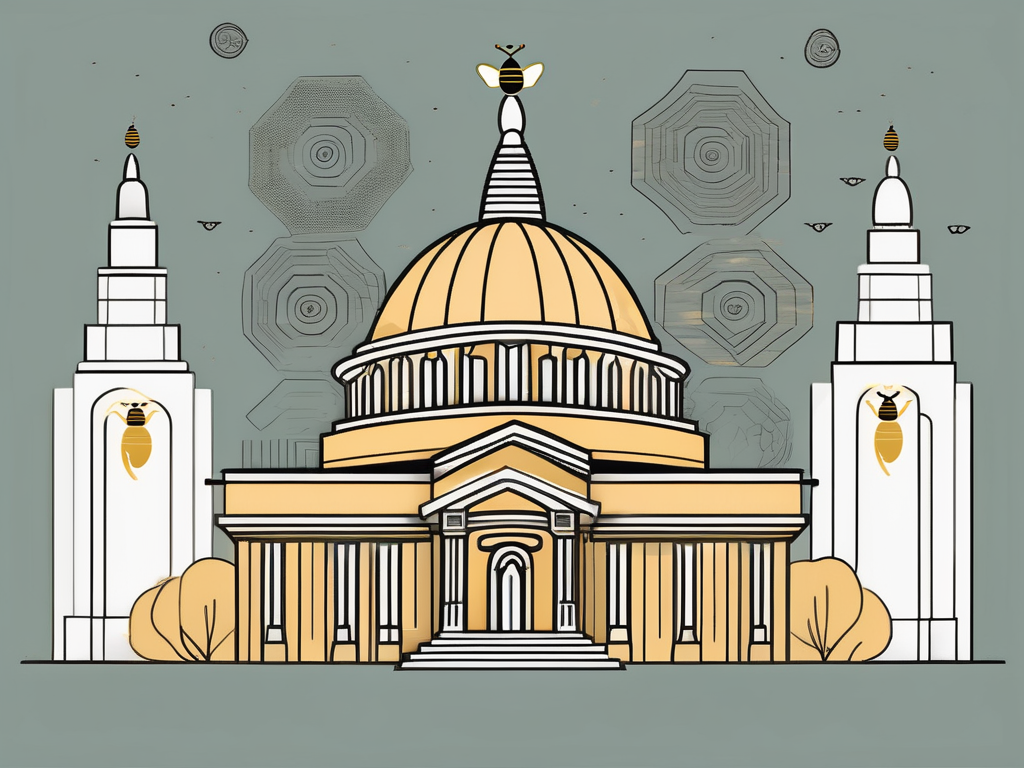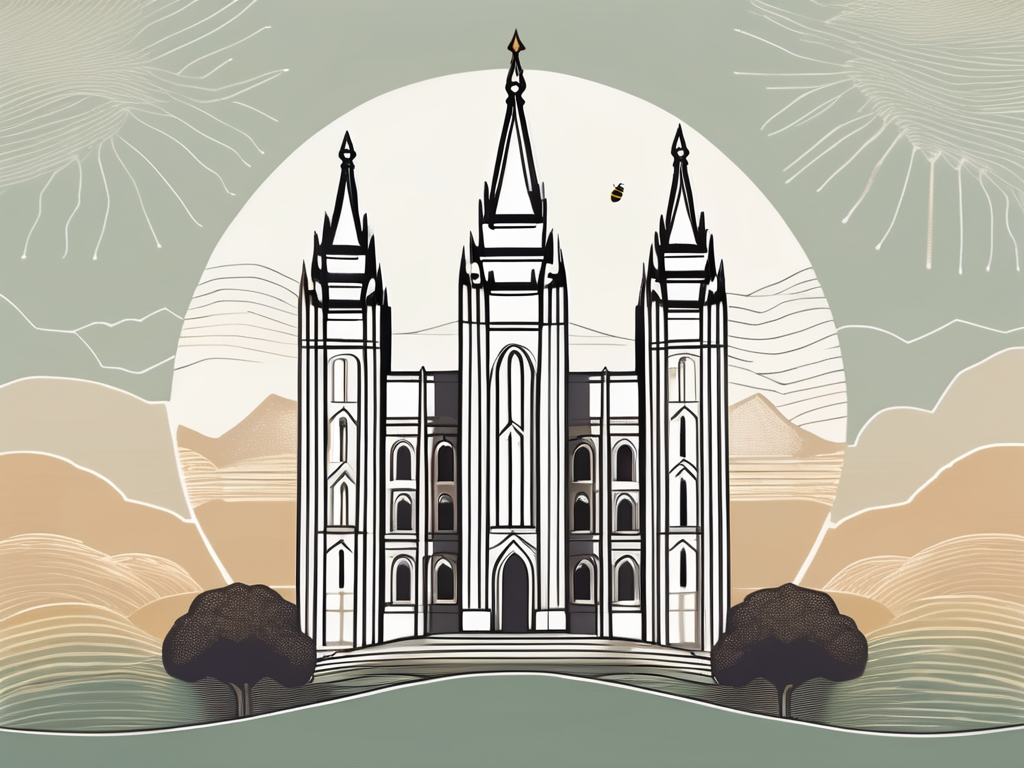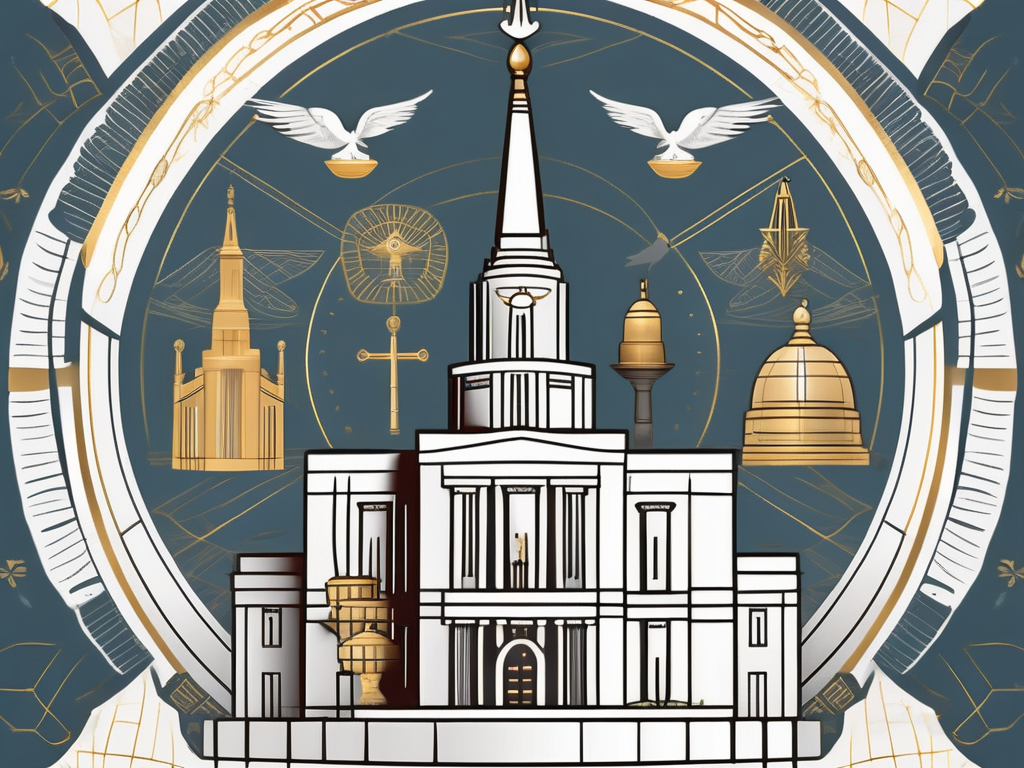If you’ve ever heard of the LDS Church, also known as The Church of Jesus Christ of Latter-day Saints, you might have questions or misconceptions about what they believe and practice. In this article, we’ll bring you ten fascinating facts about the LDS Church that will shed light on their beliefs, practices, and debunk some common misconceptions. Whether you’re curious or seeking a better understanding, these facts will help you grasp the basics of LDS.
Understanding the Basics of LDS
The Origin and History of LDS
The LDS Church, also known as The Church of Jesus Christ of Latter-day Saints, traces its origins back to the early 19th century in upstate New York. It was during this time that its founder, Joseph Smith, claimed to have had visions and received revelations from God. According to their beliefs, Smith was chosen as a prophet to restore the true gospel of Jesus Christ, which they believe had been lost or corrupted over time.
Joseph Smith’s first vision, as it is commonly known, occurred in the spring of 1820 when he was just 14 years old. According to his account, he went into a grove of trees near his home to pray and seek guidance from God. It was during this prayer that he claimed to have seen a vision of God the Father and Jesus Christ, who told him not to join any existing church as they were all in a state of apostasy.
Over the next decade, Joseph Smith continued to receive revelations and instructions from God. He claimed to have been visited by various heavenly messengers, including the angel Moroni, who guided him to a set of golden plates buried in a nearby hill. These plates, which Smith translated with the help of divine assistance, became known as the Book of Mormon.
With the publication of the Book of Mormon in 1830, Joseph Smith officially organized the LDS Church. The early years of the church were marked by persecution and hardship as its members faced opposition from both religious and secular authorities. Despite these challenges, the church continued to grow and gain followers.
Today, the LDS Church is a worldwide religious movement with millions of members. It is headquartered in Salt Lake City, Utah, and has a presence in over 180 countries. The church is known for its strong emphasis on family, moral values, and service to others.
Key Beliefs and Practices of LDS
One of the central beliefs of the LDS Church is the concept of eternal families. LDS members believe that through sacred ordinances performed in their temples, families can be sealed together for eternity. This belief brings great comfort and hope to LDS families, as it emphasizes the eternal nature of their relationships and the importance of family bonds.
In addition to the Bible, the LDS Church considers the Book of Mormon to be another testament of Jesus Christ. They believe that the Book of Mormon was translated by Joseph Smith from the ancient writings of prophets who lived in the Americas. It is seen as a companion to the Bible and is regarded as scripture by LDS members.
LDS members strive to live by a set of moral guidelines known as the Word of Wisdom. This code of conduct includes abstaining from drugs, alcohol, tobacco, and harmful substances. It also encourages a healthy lifestyle, promoting the consumption of wholesome foods and regular physical activity.
The LDS Church places a strong emphasis on missionary work. Young men and women, usually between the ages of 18 and 25, have the opportunity to serve as full-time missionaries for a period of two years. During this time, they dedicate themselves to sharing their faith with others and inviting them to learn more about the teachings of the LDS Church.
Overall, the LDS Church is a vibrant and dynamic religious organization with a rich history and a strong sense of community. Its members are dedicated to living their faith and striving to follow the teachings of Jesus Christ. Through their emphasis on family, service, and personal revelation, LDS members seek to find meaning and purpose in their lives and build a relationship with God.
Unveiling the LDS Facts
Fact 1: The Role of Prophets in LDS
In the LDS Church, prophets are believed to receive direct guidance from God to lead and guide the church. They are seen as spiritual leaders and are believed to have the authority to receive revelations and make important decisions for the church and its members.
Members of the LDS Church look to the prophet as a source of guidance and direction in their personal lives. They believe that by following the prophet’s teachings, they can draw closer to God and find happiness and peace.
Prophets in the LDS Church are not only revered for their spiritual leadership but also for their exemplary lives. They are seen as examples of righteousness and are often admired for their humility, wisdom, and dedication to serving others.
Through their prophetic guidance, LDS members are encouraged to live virtuous lives, prioritize their families, and actively participate in their communities.
Fact 2: The Significance of Temples
Temples are considered sacred places by members of the LDS Church. They are not regular places of worship but rather special buildings dedicated to performing sacred ordinances and ceremonies.
Inside temples, members of the LDS Church participate in ceremonies such as baptisms for the dead, sealings for eternal marriage, and other ordinances believed to unite families for eternity. These ceremonies are considered sacred and are not open to the general public.
Temples are meticulously designed and constructed with great attention to detail. They are adorned with beautiful artwork, intricate carvings, and symbolic representations of LDS beliefs and teachings.
Members of the LDS Church often have a deep reverence for temples and consider them to be a place of peace, reflection, and spiritual renewal. They view temple attendance as a way to strengthen their relationship with God and their commitment to living the principles of their faith.
Fact 3: The Concept of Eternal Families
The LDS Church places great emphasis on the importance of family. They believe that families can be together for eternity, not just in this life but also in the afterlife. This belief brings comfort and hope to LDS members, knowing that their relationships can continue beyond death.
This belief in eternal families also shapes their approach to marriage and parenting, fostering strong family bonds and a focus on nurturing and supporting one another.
Members of the LDS Church strive to create loving and harmonious family relationships, recognizing that the family unit is central to their eternal progression. They believe that through their commitment to family values and principles, they can experience joy and fulfillment in this life and in the eternities.
Additionally, the LDS Church provides resources and programs to support families in their efforts to strengthen their relationships and build a solid foundation of love, respect, and unity.
Fact 4: The Importance of Missionary Work
Missionary work is a vital component of the LDS Church’s beliefs and practices. Young men and women, usually in their late teens or early twenties, are encouraged to serve as full-time missionaries, dedicating two years of their lives to sharing the teachings of the LDS Church with people around the world.
These missionaries strive to build relationships, teach the gospel, and serve others. Through their efforts, they aim to bring individuals closer to Jesus Christ and offer them the opportunity to join the LDS Church.
Missionaries undergo rigorous training before embarking on their missions. They study scriptures, learn foreign languages, and develop communication and leadership skills. This preparation equips them to effectively share their beliefs and connect with people from diverse backgrounds.
Missionary service is seen as a transformative experience for both the missionaries and the individuals they interact with. It provides an opportunity for personal growth, cultural exchange, and the sharing of spiritual insights.
Fact 5: The LDS Health Code
The LDS Church promotes a health code known as the Word of Wisdom. This code is a set of guidelines that encourage members to take care of their physical bodies and live clean, healthy lives.
It includes abstaining from harmful substances such as alcohol, tobacco, coffee, and tea. Additionally, a focus on healthy eating habits and regular exercise is encouraged to maintain overall well-being.
The Word of Wisdom is not viewed as a set of strict rules but rather as a principle of personal responsibility and self-discipline. Members of the LDS Church strive to live in harmony with these guidelines, recognizing the benefits of a healthy lifestyle on their physical, mental, and spiritual well-being.
Furthermore, the LDS Church provides resources and support to help individuals and families make informed choices about their health. They emphasize the importance of balance, moderation, and self-care in maintaining a healthy and fulfilling life.
Fact 6: The LDS View on Afterlife
According to LDS beliefs, life continues after death. They believe in an afterlife composed of different kingdoms or levels of glory. The ultimate goal is to attain exaltation, which is to become like God and live in the highest kingdom with eternal joy and happiness.
However, the LDS Church teaches that everyone, regardless of their faith, will have the opportunity to receive salvation and progress in the afterlife. Through posthumous ordinances performed in temples, LDS members have the opportunity to extend these blessings to deceased family members.
This belief in the afterlife provides comfort and hope to LDS members, knowing that death is not the end but rather a transition to a state of continued growth and progression. It also motivates them to live according to the principles of their faith, striving to develop Christlike attributes and build a strong relationship with God.
Additionally, the LDS Church places a strong emphasis on the importance of personal agency and accountability. They believe that individuals have the freedom to choose their eternal destiny and that their choices in this life have eternal consequences.
Fact 7: The Role of Women in LDS
Women play a crucial role in the LDS Church. They may serve in various leadership positions at the congregational and regional levels. Women also serve as missionaries and are valued for their contributions to the church and society.
While men hold the priesthood, which is seen as the power and authority to act in God’s name, women are recognized for their unique spiritual gifts and abilities. Their role in nurturing and raising families is highly regarded.
Women in the LDS Church are encouraged to develop their talents, pursue education, and actively participate in the decision-making processes of the church. They have opportunities to serve in various capacities, including teaching, counseling, and providing support to individuals and families in need.
The LDS Church recognizes the importance of gender equality and emphasizes the complementary roles of men and women in building strong families and communities. They believe that both men and women are essential in carrying out God’s work on earth.
Fact 8: The LDS Stance on Education
The LDS Church places a strong emphasis on education and encourages its members to seek knowledge and personal growth. They believe that education is not only important for temporal success but also essential for spiritual growth and development.
LDS members are encouraged to pursue education at all levels and to use their knowledge to benefit individuals, families, and communities. The LDS Church operates several universities and colleges dedicated to providing quality education within a values-based framework.
Education is viewed as a means of expanding one’s horizons, developing critical thinking skills, and gaining a deeper understanding of the world. It is seen as a lifelong pursuit that extends beyond formal schooling and encompasses personal study, intellectual curiosity, and continuous learning.
The LDS Church encourages its members to be active participants in their communities, using their education and skills to make positive contributions and promote the common good.
Fact 9: The LDS Humanitarian Efforts
The LDS Church is actively engaged in humanitarian work around the world. They provide assistance to individuals and communities affected by natural disasters, poverty, and other challenging circumstances.
Through their humanitarian efforts, the LDS Church aims to relieve suffering and promote self-reliance. They work in collaboration with other organizations and individuals to make a positive impact on people’s lives.
Humanitarian projects undertaken by the LDS Church include providing clean water, emergency relief supplies, medical assistance, and educational resources. They also support initiatives that empower individuals and communities to become self-sufficient and improve their quality of life.
Members of the LDS Church are encouraged to actively participate in these humanitarian efforts, volunteering their time and resources to help those in need. They view service as a fundamental principle of their faith and a way to emulate the example of Jesus Christ.
Fact 10: The LDS View on Other Religions
The LDS Church recognizes the value and truth found in other religions and encourages individuals to respect and learn from diverse religious beliefs. They believe that all people can find truth and spiritual guidance in their own way.
The LDS Church seeks to build bridges of understanding and collaboration with other religious organizations and individuals, fostering unity and working towards common goals that benefit society as a whole.
Interfaith dialogue and cooperation are seen as opportunities for growth, learning, and mutual respect. The LDS Church encourages its members to engage in respectful conversations with individuals of different faiths, seeking to find common ground and promote understanding.
While the LDS Church believes in the unique truths and principles of their own faith, they also recognize the importance of religious freedom and the right of individuals to worship according to their own conscience.
Through their interactions with people of different religious backgrounds, LDS members aim to promote tolerance, acceptance, and a spirit of cooperation, recognizing the inherent worth and dignity of all individuals as children of God.
Debunking Common Misconceptions about LDS
Misconception 1: Polygamy in LDS
Although historically associated with the LDS Church, polygamy or plural marriage is not practiced or endorsed by the church today. The LDS Church officially disavowed the practice in 1890 and no longer practices or condones it.
Modern-day LDS members are committed to monogamous marriages and place a strong emphasis on marital fidelity and commitment.
Misconception 2: LDS and Christianity
There is some debate about whether the LDS Church is considered part of mainstream Christianity. While their beliefs may differ from traditional Christian denominations, members of the LDS Church consider themselves to be Christians and followers of Jesus Christ.
They believe that Jesus Christ is the Son of God, the Savior and Redeemer of the world. They also study and teach from the Bible, alongside other scriptures that they believe to be additional revelations from God.
Misconception 3: The LDS Secret Rituals
The LDS Church conducts sacred ordinances within its temples, but this should not be mistaken as secretive or exclusive. While not open to the general public, the purpose of these ceremonies is to unite families and bring individuals closer to God.
The LDS Church encourages its members to share their beliefs and teachings with others and welcomes individuals to attend their regular worship services and other public events.
By exploring these ten fascinating facts about the LDS Church, you can gain a better understanding of their beliefs, practices, and debunk common misconceptions. Whether or not you agree with their teachings, it’s important to approach any religion with respect and an open mind. Understanding different faiths can broaden our perspectives and promote tolerance in a diverse world.












